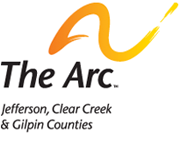Section 504
Not all children with disabilities need special education or individualized instruction. However, due to their disability, they may need supports and services at school. Even though your child is not eligible for an IEP, they may be able to get help through a 504 Plan.
504 plans aren’t the same as IEPs. They’re each covered by different laws and work in different ways. But the end goal is the same: to help students be successful in school.
Overview of Section 504
Section 504 of the Rehabilitation Act of 1973 is an anti-discrimination, civil rights statute that requires the needs of students with disabilities to be met as adequately as the needs of the non-disabled are met. In other words, 504 plans legally ensure that students will be treated fairly at school.
We sometimes hear from parents that their school told them “We don’t do that in this school.” Compliance with Section 504 is a federal statute and is not optional for program and activities that receive Federal financial assistance from the U.S. Department of Education, this includes public schools and publicly funded charter schools.
Section 504 also gives students the right to reasonable accommodations in these programs and activities. Accommodations are changes that give people equal access—for example, providing an audiobook, large print, or Braille version of a book.
Section 504 is a civil rights statute, not a special education statute. Therefore, it is the responsibility of regular education staff and building administration to implement and monitor the 504 Plan.
Eligibility
To be eligible under Section 504, students must meet three criteria. The three criteria are:
(1) a mental or physical impairment,
(2) which substantially limits,
(3) one or more major life activities.
- Major life activities include, but are not limited to:
- Self-care, Manual Tasks
- Thinking, Learning
- Walking, Seeing
- Speaking, Breathing
- Interacting with others, and working
- As of January 1, 2009 with the reauthorization of the Americans with Disabilities Amendment Act, this list has been expanded to include the life activities of:
- reading
- concentrating
- standing
- lifting
- bending
- This may include individuals with ADHD, dyslexia, cancer, diabetes severe allergies, chronic asthma, Tourette’s syndrome, digestive disorders, cardiovascular disorders, depression, conduct disorder, oppositional defiant disorder, HIV/AIDS, behavior disorders and temporary disabilities (e.g., broken writing arm, broken leg, etc.).
- Conditions that are episodic or in remission are also now covered if they create a substantial limitation in one or more major life activity while they are active. Students who are currently using illegal drugs or alcohol are not covered or eligible under Section 504.
It is important to understand that ALL three criteria must be present for a student to be eligible for a 504 Plan. Equally important, this disability must be why the student cannot equally access or receive benefit from the school’s programs and services.
Evaluation
An evaluation under Section 504 is not a full and individual evaluation as required under special education. Data used for the evaluation can be broad and may include, but is not limited to:
- Medical records, school records, standardized test results, classroom observations, work samples, observations, interviews with the student, parent, and school personnel.
Under Section 504, a parent has the right to refer their child for evaluation under Section 504.
However, “the school district must also have reason to believe that the child is in need of services under Section 504 due to a disability” (OCR Memorandum, April 29, 1993). Therefore, a school district does not have to refer or evaluate a child under Section 504 solely upon parental demand. The key to a referral is whether the school district staff suspects that the child has a mental or physical impairment that substantially limits a major life activity and is in need of specific accommodations and thus, needs to be evaluated.
There are times when school staff do not believe that the child needs services and thus refuses to evaluate the child. In this case, school staff must notify parents of their procedural rights. Most children with learning and attention issues, such as dyslexia and ADHD, are protected by Section 504.
Reasonable Accommodations under Section 504
Each child’s needs are determined individually. What is appropriate for each child is based on the nature of the disabling condition and what that child needs in order to have an equal opportunity to learn alongside their peers.
Accommodations address specific challenges. A child with ADHD who’s easily distracted might get seating at the front of the class. A child with dyslexia might be allowed to use text-to-speech technology. And a student with slow processing speed might get extended time on tests.
There is no guarantee of A’s or B’s or even that the student will not fail. Students are still expected to produce.
Reviewing the 504 Plan
Once the plan is developed, all the student's teachers are responsible for implementing the accommodations in the plan, as well as participating in plan reviews.
The 504 plan should be reviewed at least annually to determine if the accommodations are up to date and appropriate, based on the student's needs. Any 504 plan team member, including the parent, may call for a 504 plan review at any time if there is an educational concern or change in the student's needs.
Who to contact
If you believe your child may be eligible for a 504 Plan or you are having trouble with the implementation of an existing 504 Plan and you live:
In Jefferson County
Jeffco Public Schools has a department dedicated to Section 504 staffed with coordinators that are available to answer your questions. The link below gives you the contact information as well as a link to the 504 Parent Guide and the Referral Form. We recommend you contact the 504 office for support.
https://www.jeffcopublicschools.org/cms/One.aspx?portalId=627965&pageId=92740
In Clear Creek or Gilpin County
Contact the school secretary to determine who the 504 Coordinator is for your child’s school.
For more detailed information about 504 Plans, visit:
U.S. Department of Education's 504 information : http://www2.ed.gov/about/offices/list/ocr/504faq.html
Understanding Special Education Law (IDEA), Section 504 and ADA: https://www.understood.org/en/school-learning/your-childs-rights/basics-about-childs-rights/at-a-glance-which-laws-do-what
504 Plans in Colorado: https://study.com/academy/popular/504-plans-in-colorado.html
EXCELLENT WEBSITE Understood.org (504 Plans): https://www.understood.org/en/school-learning/special-services/504-plan. This link includes “7 Steps to Getting a 504 Plan for Your Child”
A MUST READ ARTICLE about 504 eligibility and accommodations: https://www.greatschools.org/gk/articles/section-504/
An Online 504 Training: http://sss.usf.edu/resources/topic/section504/504course/Overview/Overview.html. There are 10 modules. Choose the ones that pertain to your situation
Wrightslaw is dedicated to special education law, education law, and advocacy for children with disabilities.: https://www.wrightslaw.com/

